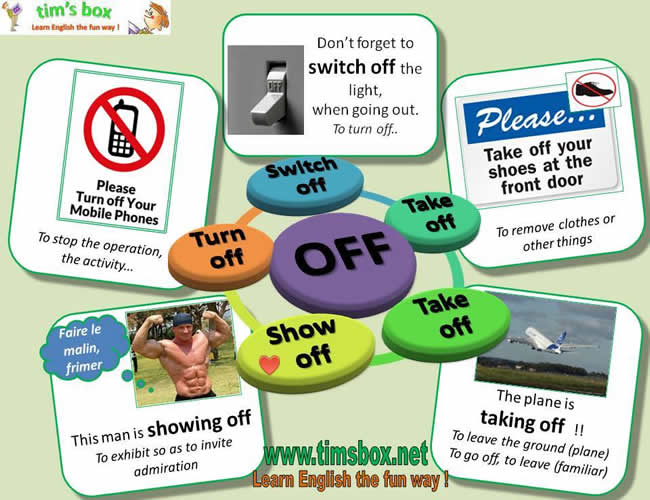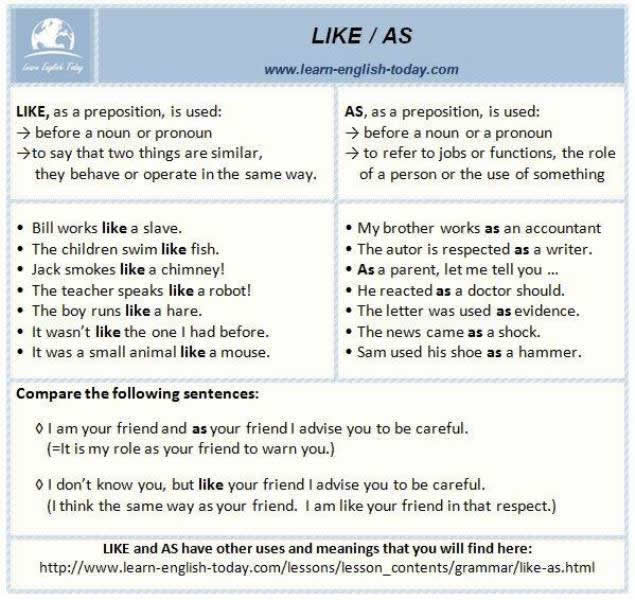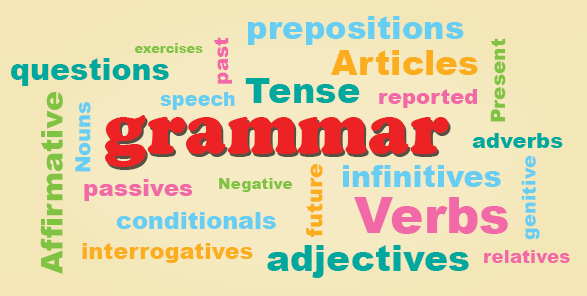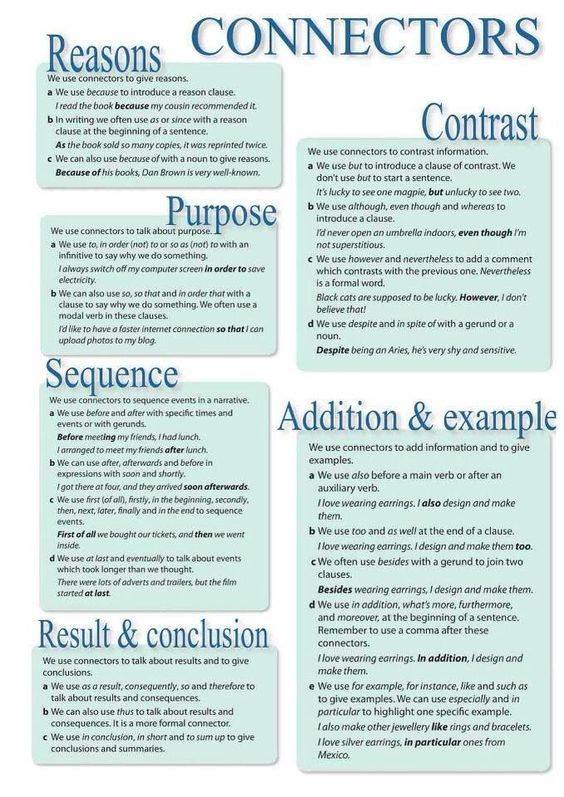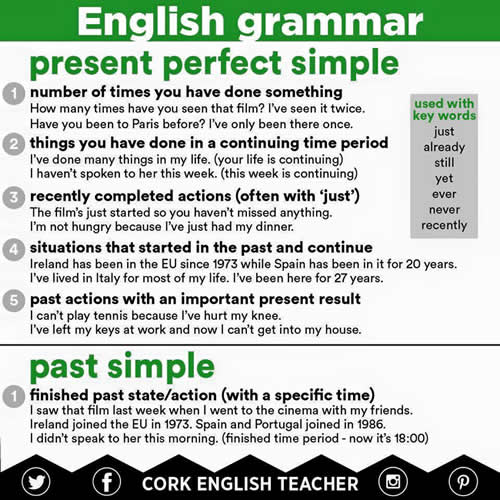Category: Grammar
Phrasal Verbs With ‘Off’ (Turn off, Take off, Switch off, Show off) Using phrasal verbs with off; Turn off Meaning; To stop the operation, the activity … Example; Please …
Using and Differences Between ‘Like’ and ‘As’ Like LIKE, as a preposition, is used: -> before a noun or pronom -> to say that two things are similar, they behave …
Modifying Comparatives & Superlatives much, far, a lot, rather, a little, a bit, slightly, even, any, yet, no + comparative adjective (Examples)
Connectors – Reasons, Contrast, Purpose, Sequence, Addition & Example, Result & Conclusion Reasons; We use connectors to give reasons.
Ways to use ‘Would’ Conditionals; I would memorise these sentences if I were you!
Uses of ‘Much’, ‘Many’, ‘A lot of’ and ‘Lots of’ Much and Many are mainly used in negative sentences and questions.
When we use Present Perfect Simple Tense and Simple Past Tense Detailed expressions; Present Perfect Simple Used with keywords; just, already, still, yet, ever, never, recently – Number of …
English Grammar – Predictions When we talk about the future and what we think will happen, we can use two pieces of language: i. Will ii. Going to What is the …
The Present Simple Tense – Detailed Expression Use; to describe FACTS to describe HABITS to describe ROUTINES to describe SCHEDULES Positive, negative and interrogative examples, Question forms
Differences Between ‘Every day’ and ‘Everyday’ Every day; Phrase that act as an adverb. It describes the frequently; on all of days, on each day (monday,tuesday,wednesday etc…)
